
Crash Course 360°Pack
₹15,000.005 Weeks of Crash Course + Student Visa | Ideal for English medium students or students fluent in English.


The United Kingdom stands out as a premier destination for studying abroad, boasting over 150 renowned universities that bolster students' academic and professional trajectories. Annually, a multitude of students from around the globe enroll in various programs such as MBA, Engineering, 1-Year Master's, and Nursing in the UK. Official statistics from the UK Government indicate a significant growth in higher education enrollees, with numbers soaring to 433,102 in March 2023 from 222,047 in September 2019. Additionally, there was a 22% increase in the number of study visas issued, totaling 477,931 by the year ending March 2022.
In the academic year 2021-22, approximately 679,970 international students from more than 100 countries were pursuing their education in UK universities. This cohort included 120,140 students from EU countries and 559,825 from non-EU nations. Notably, the Ministry of External Affairs reports that in 2022, around 55,465 Indian students were engaged in studies across the UK. If you're earnestly considering the UK for your studies, delve into this guide to discover essential information on top universities and courses, visa prerequisites, educational expenses, scholarships, intake periods for 2023, and more, to embark on your UK education journey.
The allure of studying in the UK lies in its world-renowned universities, cutting-edge research facilities, diverse international community, and deep cultural heritage, all of which combine to make it an esteemed destination for higher education. For international students, opting for the UK is a wise decision, given its outstanding educational standards and storied tradition of academic excellence. The nation is home to enchanting cities such as Edinburgh, Manchester, Birmingham, and Glasgow, each offering its own unique blend of history and modernity. Additionally, the UK boasts several globally acclaimed universities, including the University of Oxford, University of Cambridge, Imperial College London, and University College London, known for their high-ranking positions and exceptional academic programs.
Study in UK: Key Facts & Statistics
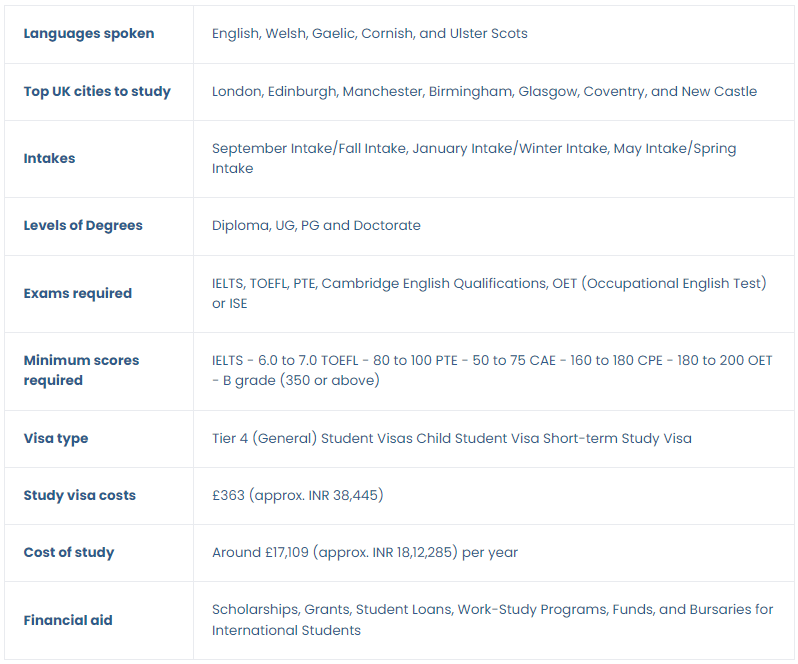
To study in the UK, students must have strong academic records, prove English proficiency, secure a Tier 4 Student Visa with a fee of £363, and choose from a wide array of programs that align with their career goals. The UK's reputation for high-quality education, secure and supportive environment for international students, especially from India, stems from its globally recognized degrees, innovative teaching, and research focus across diverse fields such as Business, Engineering, Arts, and Medicine.

The UK's education system is renowned for its excellence and diverse higher education and career opportunities. With over 100 government-funded and private universities, international students can choose from a range of programs including diplomas, certificates, bachelor’s, master’s degrees, and specialized courses. One of the unique aspects of UK education is the availability of diploma degrees and 1-year master's programs, designed to be intensive and in-depth, allowing for quicker integration into the UK job market.
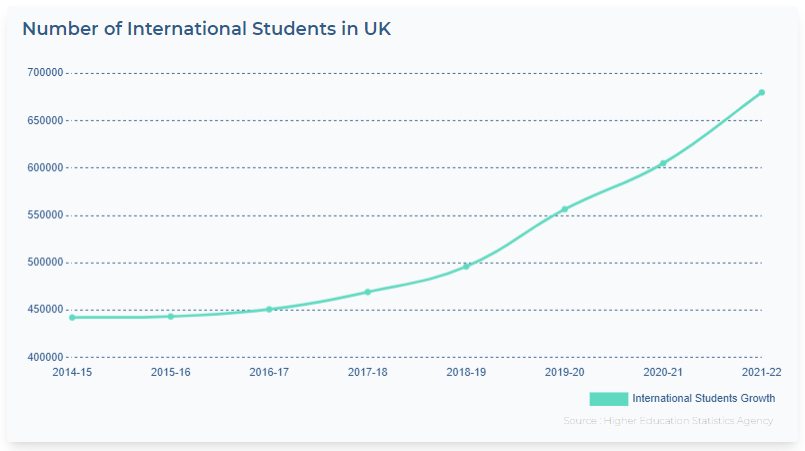
Understanding the top student cities in the UK is essential for an enriched educational experience, blending cultural vibrancy with academic prowess. Cities like London, Edinburgh, and Manchester offer a comprehensive array of opportunities. Delve into the distinct characteristics and academic offerings of each to find your ideal study location in the UK.
Oxford
Situated in South East England, Oxford is celebrated for its historic ambiance and 'the City of Dreaming Spires' nickname, reflecting its esteemed universities and stunning architecture. Average annual course fees for UK students are £9,250 for 2023-24.
London
England's capital, London, is a cosmopolitan hub hosting renowned institutions like Imperial College London and UCL, with tuition fees ranging from £9,250 to £67,892 per year.
Liverpool
Known for its maritime heritage and cultural landmarks, Liverpool's tuition fees vary between £21,000 and £40,000 annually.
Bath
Famous for its Roman baths and Georgian architecture, Bath's universities focus on disciplines like engineering and social sciences, with fees from £3,120 to £37,500 a year.
Birmingham
This diverse city in the West Midlands offers a dynamic cultural scene, with tuition fees averaging between £9,800 and £19,200 annually.
Glasgow
Scotland's largest city offers a vibrant arts and music scene, with tuition costs between £6,800 and £53,460 annually.
Wales
Celebrated for its festivals and Cardiff Castle, universities in Wales have fees ranging from £12,000 to £22,000 annually
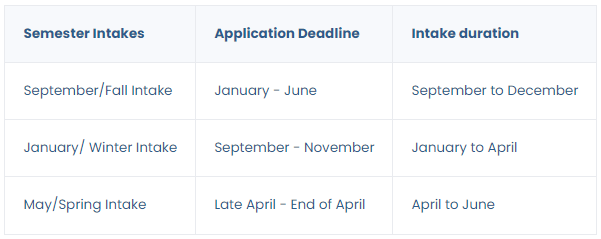
Adhering to these guidelines is crucial for a seamless and fruitful journey towards pursuing education in the UK. The steps outlined below are designed to streamline the process for prospective students aiming to study in the UK.
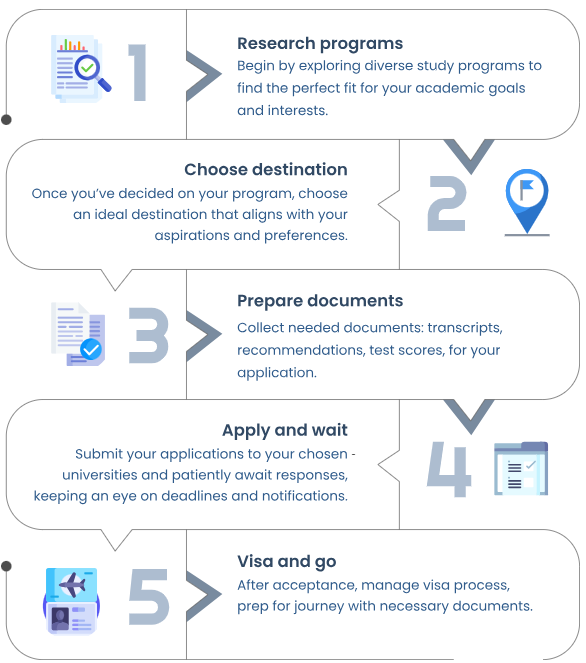
Understanding the study intake periods in UK universities is crucial for international students, as these timeframes influence application deadlines, course options, and the timing for visa procedures. The UK typically has three primary intakes: September (Fall), January (Winter), and May (Spring), with each serving distinct purposes and offering different advantages.

September (Fall), January (Winter), and May (Spring).
The September intake is the main entry point, offering the broadest selection of courses and the best opportunities for internships and networking.
January provides an alternative for those starting anew or who missed the Fall intake, albeit with somewhat fewer course options.
The May intake, while offering the least variety, caters to students seeking specialized programs or those with specific schedule requirements.
The dedicated instructors of The English Channel are passionate about adapting their teaching methods to fit each student's unique needs.
We prioritize creating the optimal learning environment, making your journey to IELTS success both swift and straightforward.
Prospective students seeking to study abroad will find exceptional academic standards at the UK's premier universities. These esteemed institutions provide an ideal environment for students eager to immerse themselves in a storied academic tradition, learn from seasoned professors, guest lecturers, and industry experts, and collaborate with peers from across the globe. Whether their interests lie in the arts, sciences, technology, or business, UK universities deliver an educational experience that can profoundly influence their future.
Below is a table showcasing prominent UK universities, accompanied by their rankings in the QS World University Rankings 2023 and the Times Higher Education (THE) Rankings 2023:
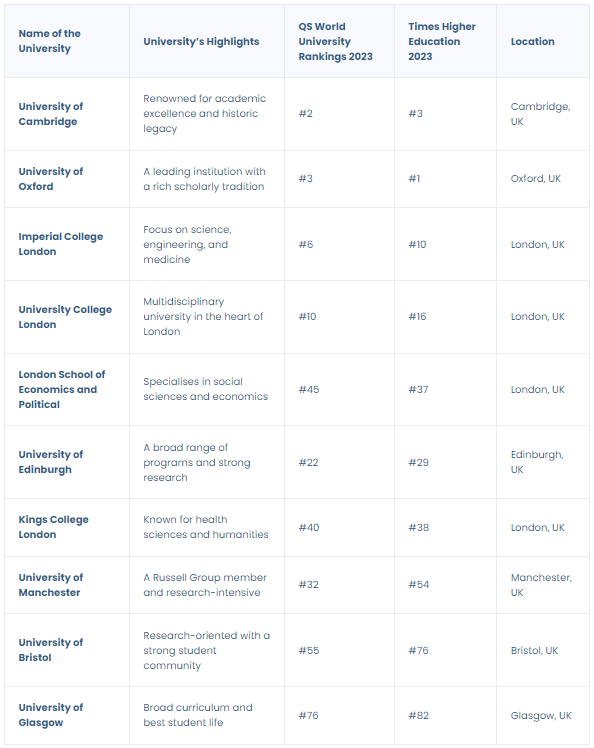

UK's leading universities emphasize experiential learning within their educational methodologies, engaging students in practical, real-world applications of their studies. Students have the liberty to select from an array of courses across various fields like Business, Engineering, Computer Science, Medicine, Data Science, Artificial Intelligence, Cybersecurity, Social Sciences, and Arts. They offer three primary degree levels: Bachelor’s, Master’s, and Doctoral research programs. Below is a curated list of in-demand courses that align with global industry needs:
These courses are among the most sought-after by international students in the UK, reflecting the current trends and demands in various sectors. The following table presents the top courses available for international students in the UK, along with the average annual tuition fees.
In the UK, scholarships serve as financial awards granted to students who meet specific eligibility criteria, helping to subsidize their educational expenses. These scholarships vary in amount and requirements, depending on the issuing body, which can be the UK government, universities, private entities, or international organizations. To foster international academic exchanges, the UK provides specific scholarships for Indian students, encouraging them to pursue their studies in the UK. Students are encouraged to diligently search and apply for scholarships that match their academic accomplishments, area of study, and financial necessities.
To pursue studies in the UK, candidates require a UK Student Visa, also referred to as the Tier 4 Visa, for full-time study programs. For shorter courses, a Visitor Visa may be necessary. Visa decisions typically arrive within 3 weeks, making early application crucial. The application fee for a UK study visa is £363 (approximately INR 38,507) when applying from outside the UK. This visa falls under the Points-Based System (PBS), a framework the UK government uses for immigration management. For detailed information on student visas or study permits, it's advised to consult the UK government's official website or contact the nearest British embassy or consulate.
For a successful UK study visa application, you'll need the following documents:
When applying from outside the UK, you'll also need to:
Explore the array of distinguished scholarships available for international students wishing to study in the UK.
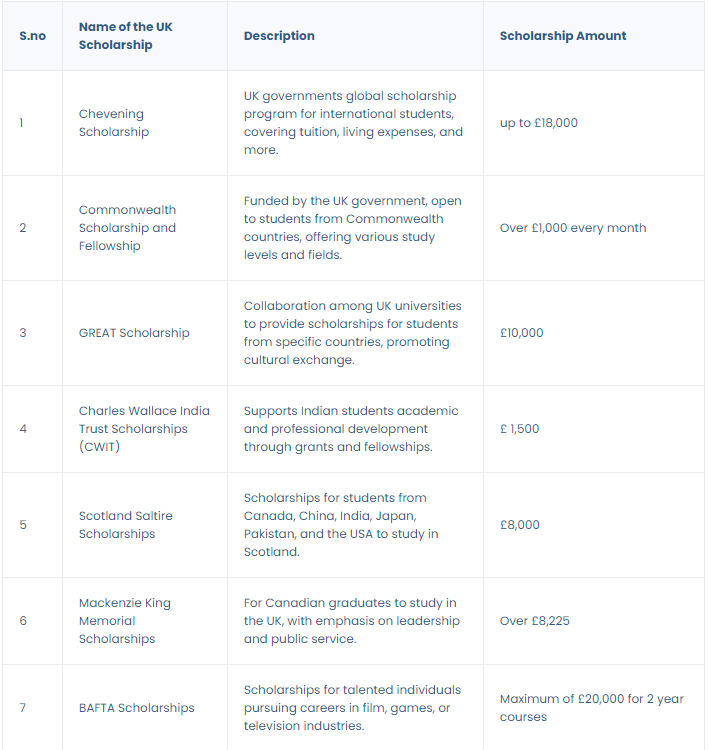
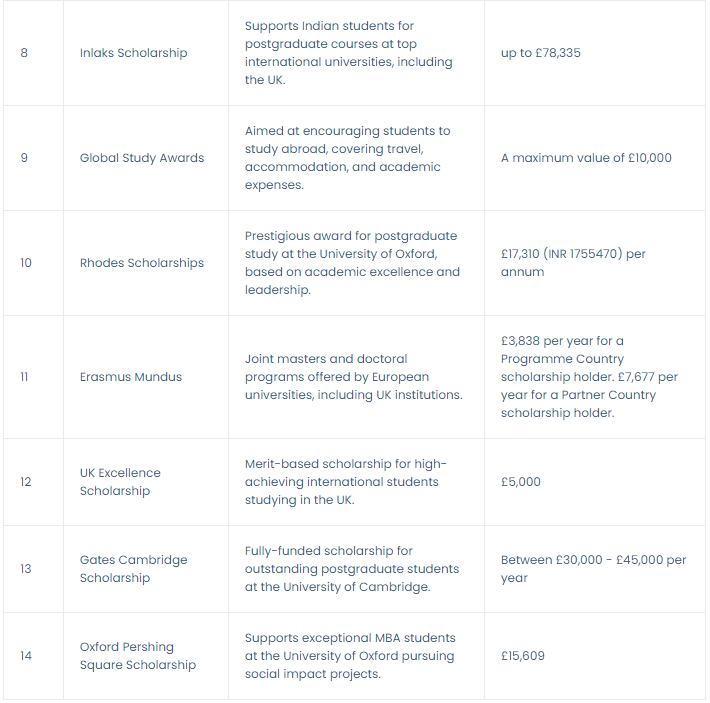
The typical annual cost of living in the UK is approximately £12,000, which equates to around 12,56,397 Indian Rupees. This estimate covers essential expenses such as housing, utilities, transport, food, and recreational activities. Life in the UK, particularly in major cities like London, Edinburgh, and Manchester, can be costly. However, students benefit from the National Health Service (NHS), which provides free healthcare, offering a significant financial
Navigating the financial aspects of studying in the UK can be challenging, but education loans from both governmental and private lenders offer a viable solution. To qualify for an education loan, students typically need to demonstrate strong academic performance, secure admission to a recognized UK university, and have a guarantor or co-signer. Financial institutions like the State Bank of India, Syndicate Bank, and Bank of Baroda offer various loan options for overseas education. Once students obtain an acceptance letter from a renowned university, the loan approval process generally accelerates.
The following are typical expenses covered by education loans for students in the UK:
Tuition fees
Accommodation costs, including rent and utilities
Travel expenses, including airfare and local transportation
Study materials, such as books, supplies, and equipment
Living expenses, covering food and personal costs
Health insurance
Visa application fees
Examination fees for tests like IELTS and TOEFL
Research-related expenses
Costs associated with academic events like workshops and seminars
Expenses related to placements and internships
Other miscellaneous costs
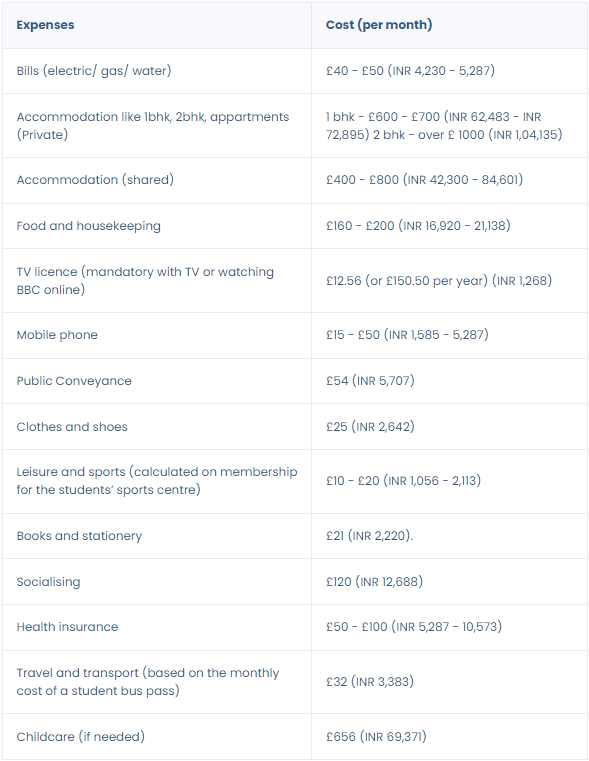
The UK offers valuable post-study work opportunities for international students via the Graduate Route Visa, allowing them to stay and work in the country for 2 years post-graduation, or 3 years for doctoral graduates. The National Living Wage increase has boosted the average hourly wage to £10.42 for international students in the UK. To secure a UK Graduate Route Visa, students must cover a £715 application fee and a £624 yearly health surcharge, opening doors to invaluable work experience and employment prospects. Upon visa expiration, graduates can transition to skilled work visas, such as the Tier 2 visa, to further their careers in the UK.
Applicants for the UK's Graduate Route open work permit need to provide these documents:
Adjacent table showcasing a variety of career paths, complete with their average annual earnings in both GBP and INR.
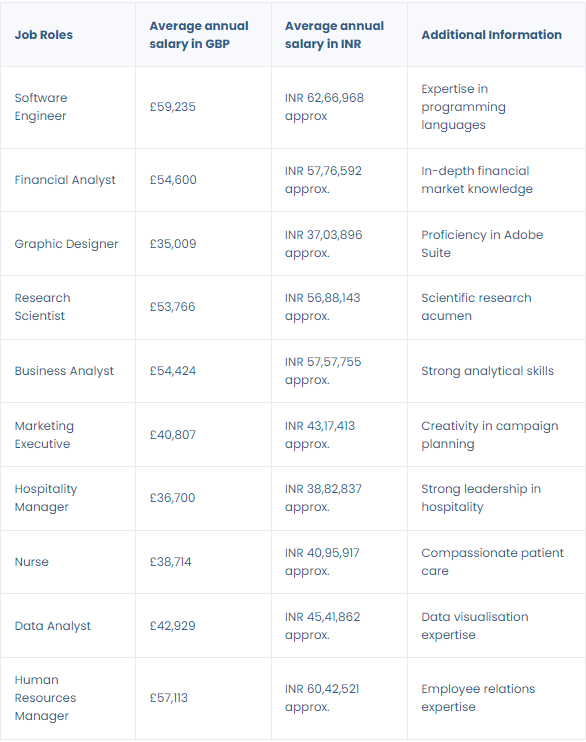

5 Weeks of Crash Course + Student Visa | Ideal for English medium students or students fluent in English.
Career Counselling & Assessment |
Courses & Program Selection |
Education Loan Processing |
SOP Writing & Guidance |
Student Visa Process (Canada & UK) |
Pre Departure Counselling |
Generally, international students pursuing undergraduate degrees pay about $36,100 annually, whereas those enrolled in graduate programs typically incur tuition fees of approximately $21,100 each year, according to data from Statistics Canada in 2022.
While Canadian universities do not offer tuition-free education, it is not entirely impossible for international students to study without bearing costs. Institutions such as the University of Toronto and the University of Alberta provide full scholarships that can cover the expenses for eligible international students.
To secure a student visa for Canada, you must show a bank balance of at least $10,000 CAD. For those planning to pursue studies in Canada, demonstrating financial capability with at least $25,000 CAD in your bank account is essential.
You are eligible to sponsor or receive sponsorship from a range of family members, including your spouse, common-law partner, conjugal partner, child, parent, grandparent, orphaned sibling, orphaned nephew or niece, and orphaned grandchild. For information on obtaining a spouse visa for Canada, you can find guidance here.
Generally, a gap of up to two years in education is considered acceptable for students aiming to study in Canada, though the acceptance of a study gap may vary depending on the specific university and the program's criteria.
Yes, degrees earned from Canadian institutions are recognized globally and renowned for their high-quality education.
Leading Canadian universities usually have acceptance rates ranging from 40% to 60%. Notable universities with higher acceptance rates are the University of Brunswick at 74%, Toronto Metropolitan University and Lakehead University each at 55%, and both the University of Montreal and the University of Guelph at 50%.
Yes, an MBA degree obtained from Canada is acknowledged worldwide, including in India. However, many graduates of Canadian MBA programs opt to remain in Canada post-graduation, attracted by the competitive salaries, ample job prospects, and the high standard of living.
After applying for the visa, the subsequent phase is the visa interview, which can be somewhat daunting and may result in visa denial if not handled well. Therefore, it's crucial to prepare thoroughly by familiarizing yourself with the frequently asked questions in Canada visa interviews to enhance your chances of success.